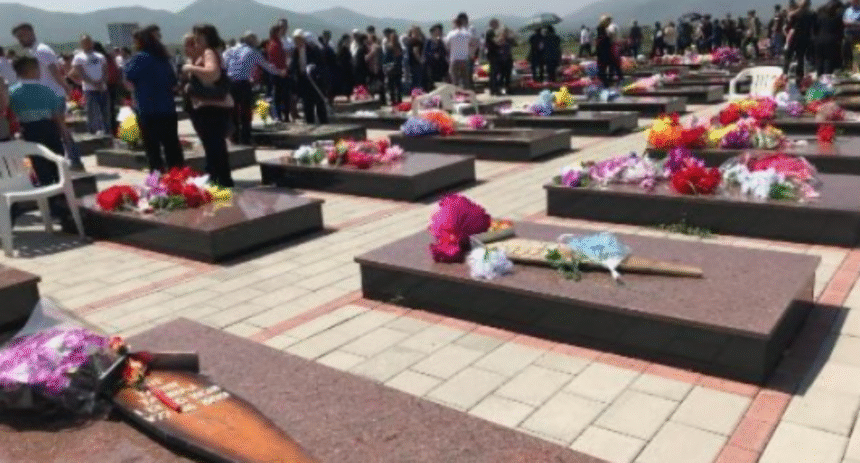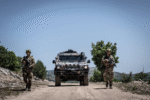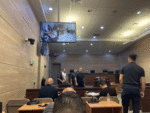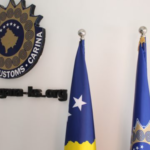Prishtina, July 22, 2025 — The courtroom bench remained empty as the trial for the Meja massacre began in Kosovo’s Basic Court in Prishtina. More than 25 years after one of the deadliest atrocities during the Kosovo war, over 50 former Serbian military and police officials are now being tried in absentia for the murder of 370 ethnic Albanians in the village of Meja and surrounding areas near Gjakova in 1999.
Despite international arrest warrants issued against the accused, none are currently in custody. Belgrade has remained silent, with Serbian institutions refusing to cooperate or even acknowledge the charges brought forward by Kosovo’s Special Prosecution.
Among those indicted are retired generals, police commanders, and former senior officials, many of whom are today visible figures in Serbian public life—publishing books, appearing on national television, engaging in politics, and even receiving state honors.
Leading Figures Named in the Indictment
One of the central figures in the indictment is Momir Stojanović, former head of military intelligence for the Prishtina Corps. Now living in Niš, Serbia, Stojanović has publicly dismissed the charges, saying he will “never appear before a court in Prishtina” but would cooperate with one in Belgrade. A former member of the ruling Serbian Progressive Party, he now claims to be an opposition critic of President Aleksandar Vučić.
Stojanović was previously under INTERPOL arrest notice issued at the request of EULEX prosecutors, but Serbian investigations were quietly dropped in 2019. He maintains that he had no command role in the Meja operation, known as Operation Reka, a claim rejected in the judgment of the Hague Tribunal in the trial of Vlastimir Đorđević, where his lack of accountability was deemed “not credible.”
Also indicted is General Dragan Živanović, commander of the 125th Motorized Brigade at the time of the massacre. Though he denied involvement in crimes during his testimony at The Hague, his unit operated in the region where over 1,800 civilians were killed, including 500 women and children, according to the Humanitarian Law Center.
Živanović, now retired, is frequently featured on Serbian media, praised as a “hero,” and awarded for his military service. A film glorifying his brigade was even produced by Serbia’s Ministry of Defense in 2021.
Other Accused: Decorated and Promoted, Not Prosecuted
- Ilija Todorov, former commander of the 63rd Paratroop Brigade, later promoted to commander of Serbia’s Special Forces, is closely aligned with Serbian state leadership. His unit also played a role in Operation Reka, though he claims limited involvement.
- Miloš Đošan, retired artillery commander, now a published author on the Kosovo war, has also participated in official government ceremonies. He testified in defense of Serbian commanders at The Hague.
- Božidar Delić, former head of the 549th Motorized Brigade—under whose command many atrocities occurred—was never prosecuted and served as a Vice President of the Serbian Parliament before his death in 2022.
Numerous others named in the Kosovo indictment, including Vlatko Vuković, Veroljub Živković, Saša Antić, and Stevo Kopanja, held commanding positions during the operation and remain unprosecuted in Serbia.
Kosovo’s indictment also includes members of special police and paramilitary units, such as those led by Franko Simatović, who was released early by the Hague Tribunal in 2023 on health grounds, after serving time for crimes in Bosnia and Croatia.
Institutional Silence in Serbia
Despite mounting evidence and formal charges, Serbia’s Ministry of Defense, Justice, and War Crimes Prosecutor’s Office have refused to cooperate or even comment on the Meja case. When contacted by Radio Free Europe, none responded to questions regarding ongoing investigations or international legal cooperation.
Even the 2013 Brussels Agreement on Mutual Legal Assistance, signed under EU auspices, remains inactive in practice. Kosovo’s legal requests go unanswered.
While Kosovo continues to pursue accountability, Serbia appears committed to shielding the accused, many of whom are now retired, honored, or embedded in the country’s public and political life.







